In the conditions of martial law, journalists very often put themselves in danger, and many need legal help. Honored lawyer of Ukraine/member of the National Union of Journalists of Ukraine (NUJU), Volodymyr Kovalchuk, drew attention to this during an offline/online meeting held at the NUJU‘s Ivano-Frankivsk Journalists’ Solidarity Center (JSC), where he explained a number of legal provisions to displaced media workers and all interested media representatives.
The participants of the meeting were the correspondent of the Tekhnopolis newspaper/the head of the communications department of the Donetsk Chamber of Commerce and Industry, Vira Iliyina, from Kramatorsk; freelancer/wife of AFU serviceman Viktoriya Bila; own correspondent for the newspapers Visti… and Poradnytsia in the western region of Ukraine Mykhailo Mazur. All other journalists had the opportunity to join the event online.
During the conversation with the media, Volodymyr Kovalchuk emphasized that in the conditions of martial law, the specificity of their work is such that they very often expose themselves to danger.
He conditionally singled out four categories of journalists who currently need legal support and assistance: those who remained working in mass media in the occupied territories; those who left the danger zone and work in the territory controlled by Ukraine; those who work at the front, on the demarcation line, in the hottest spots of the country, document the war crimes of the russian army against Ukraine. He also drew attention to the work of freelance journalists – it is this category of media workers that needs special support and protection, as they are not full-time employees of newsrooms.
During the meeting, the lawyer answered questions, in particular, about certain guarantees for journalists who perform editorial tasks in the war zone. It was also about the rights of those who have the status of an internally displaced person. Colleagues were also interested in how to get accreditation for permission to work in the hottest points of the front, etc.
“Journalists’ Solidarity Centers, created on the initiative of the National Union of Journalists of Ukraine and with the support of the International and European Federations of Journalists, as well as UNESCO, are a good platform that unites journalists, lawyers, psychologists, volunteers, public activists to support and help those who it is needed in a difficult time for our country. I am grateful to everyone who responds to cooperation with us. After all, with the beginning of the full-scale invasion of the russian federation into Ukraine, journalists faced a number of challenges,” noted the secretary of NUJU/coordinator of the Ivano-Frankivsk JSC/honored journalist of Ukraine Viktoriya Plakhta.
Viktoriya Plakhta also informed her media colleagues that the NUJU’s JSC, in cooperation with lawyers and psychologists, will hold such consultation meetings every month in a mixed format – offline and online.
Call the Ivano-Frankivsk JSC at 066 677 0726 (Viktoriya Plakhta, the coordinator of the Ivano-Frankivsk JSC). The Center’s address is 25 Sichovykh Striltsiv Street.
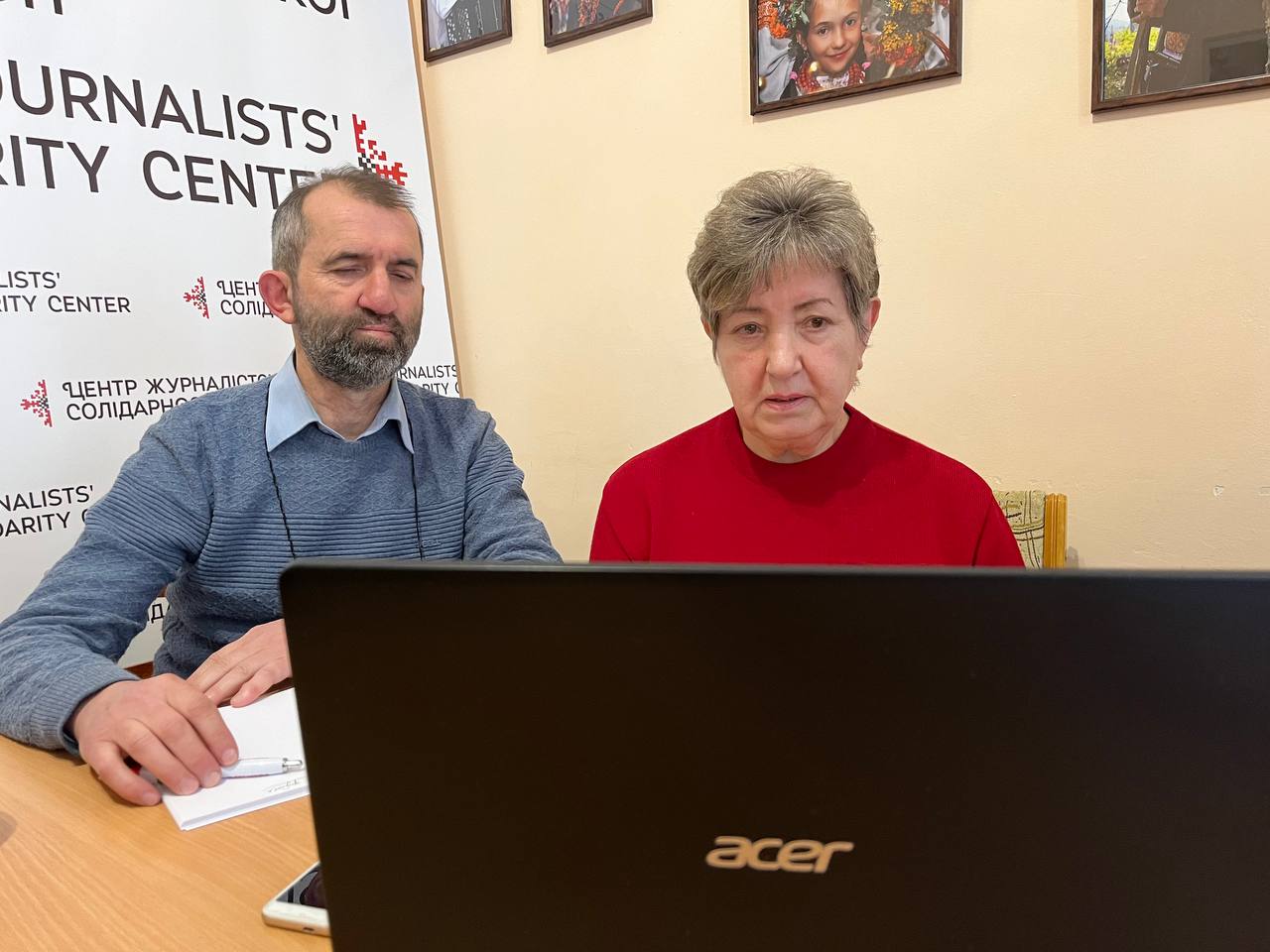
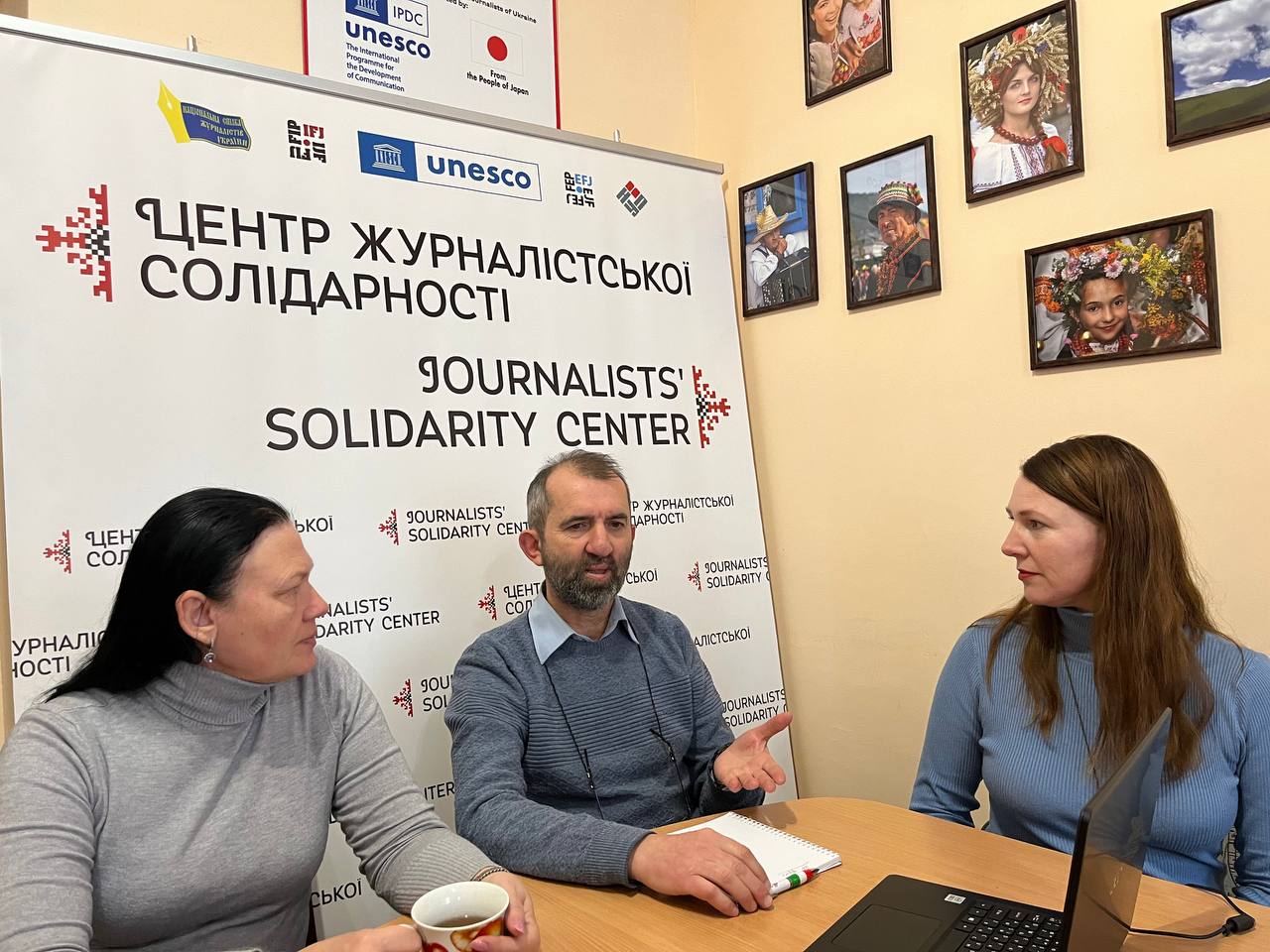
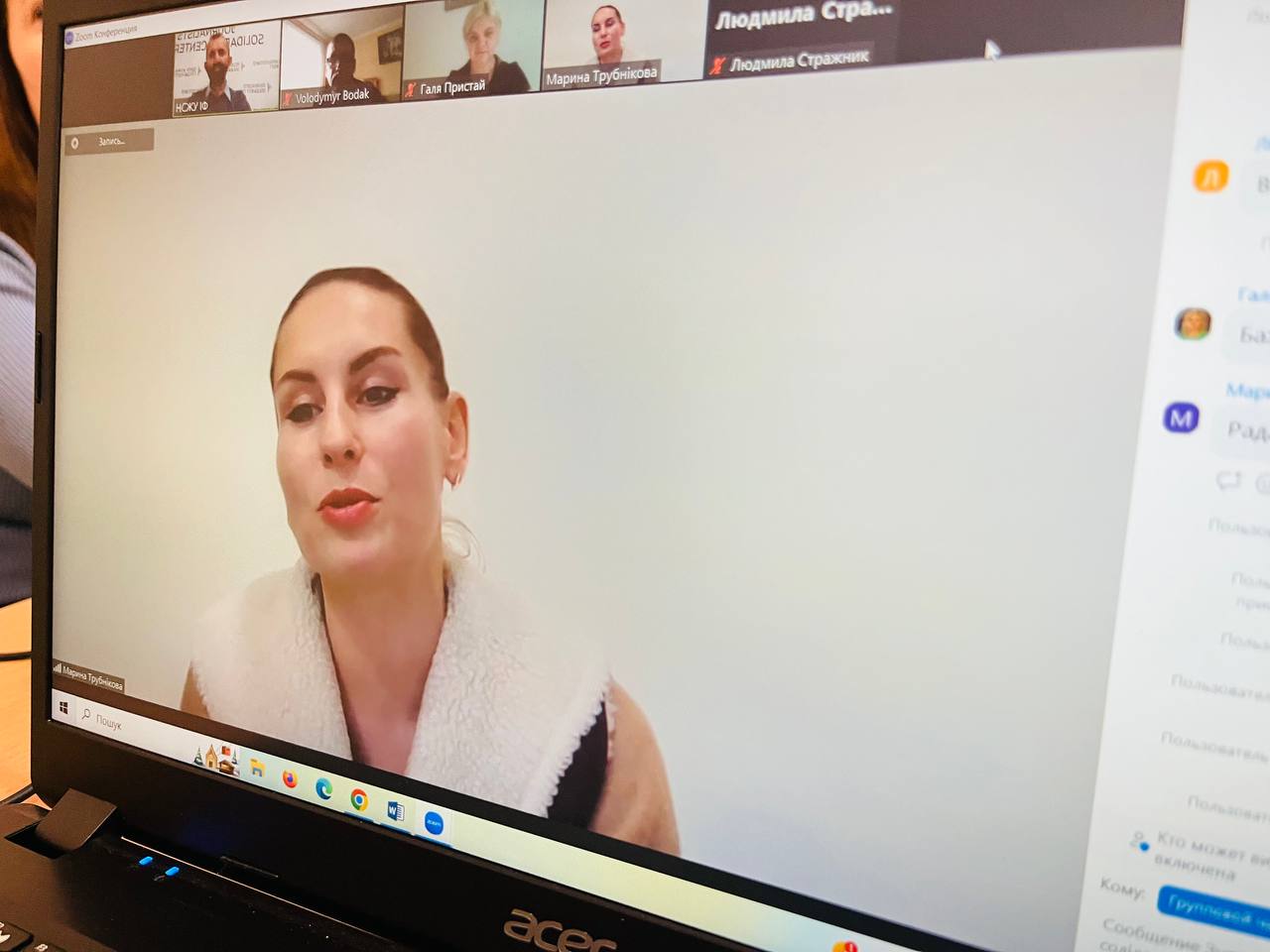
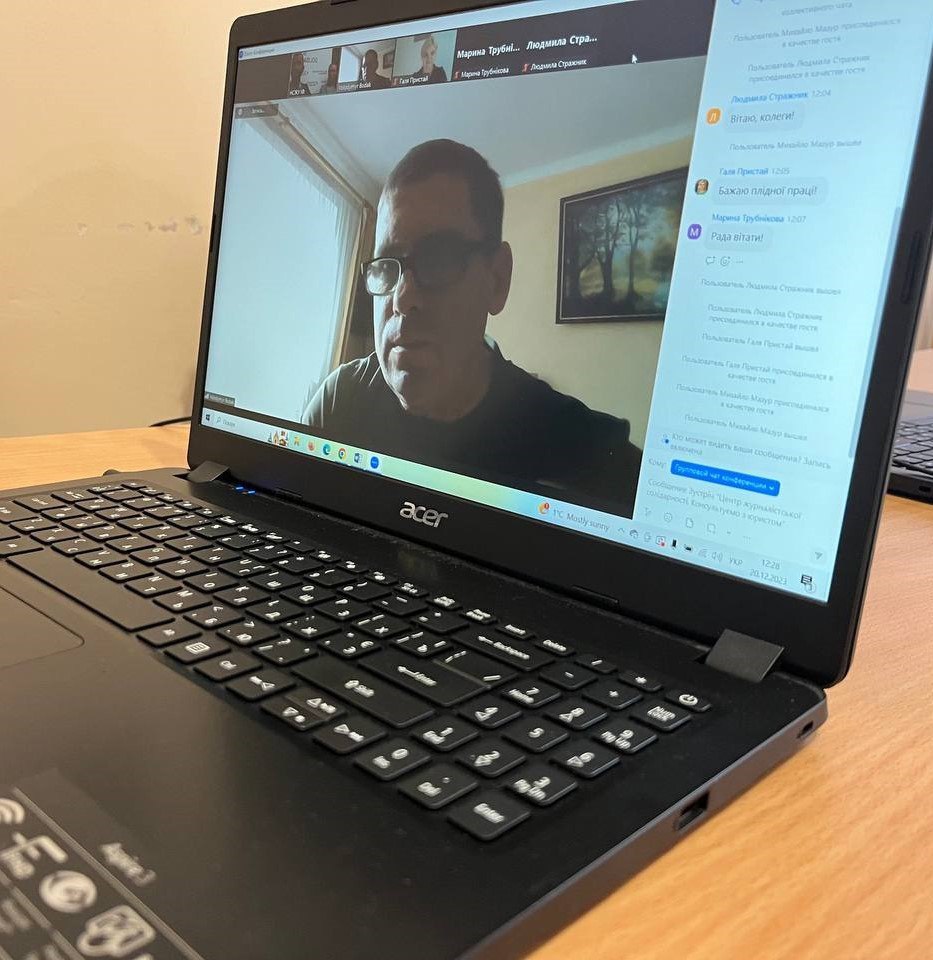
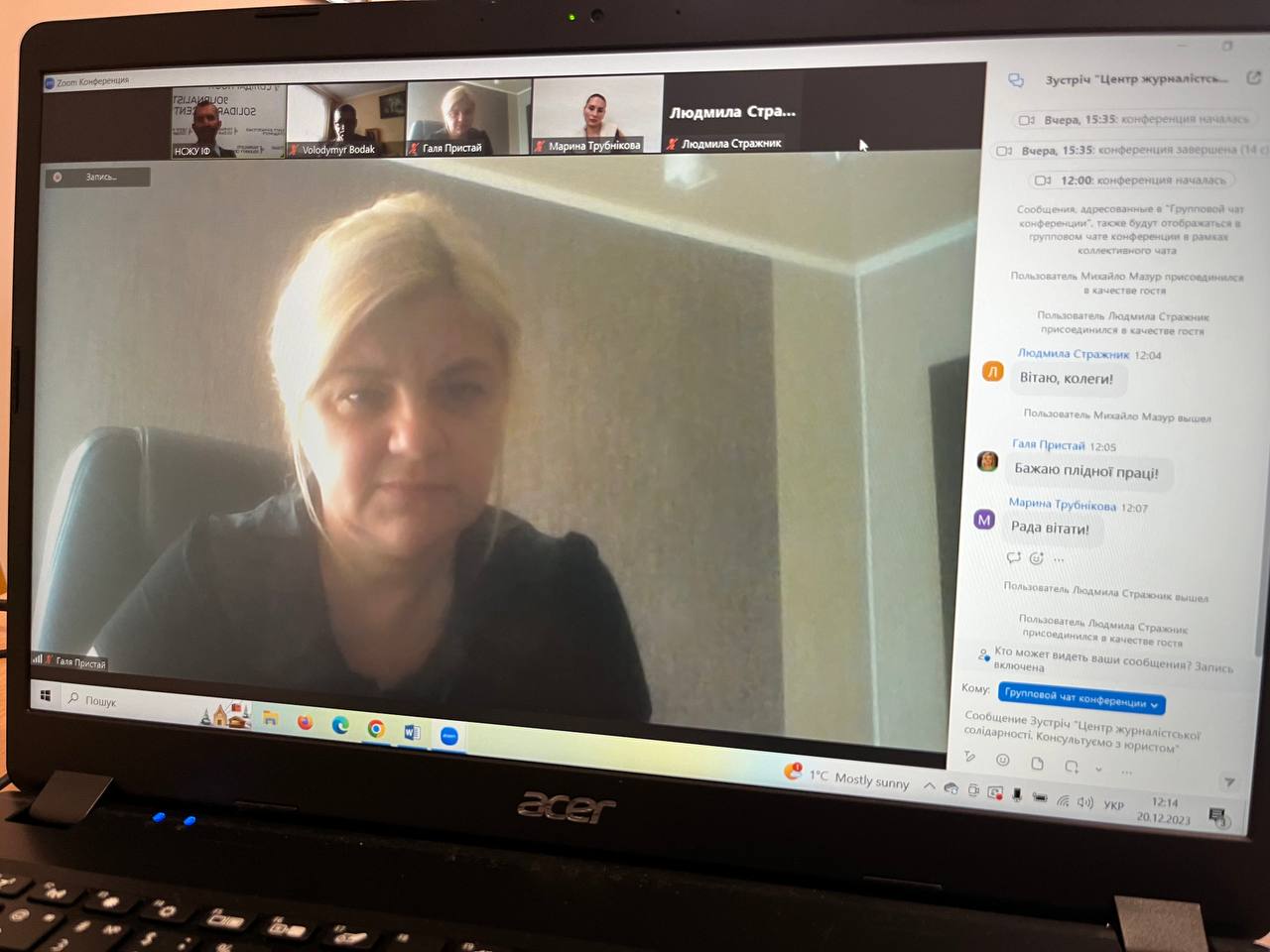
ABOUT JSC
The Journalists‘ Solidarity Centers is an initiative of the NUJU implemented with the support of the International and European Federations of Journalists and UNESCO. The initiative is designated to help media representatives working in Ukraine during the war. The Centers operate in Kyiv, Lviv, Ivano-Frankivsk, Chernivtsi, Zaporizhzhia, and Dnipro and provide journalists with organizational, technical, legal, psychological, and other types of assistance.
ABOUT UNESCO
UNESCO is the United Nations Educational, Scientific, and Cultural Organization. It contributes to peace and security by promoting international cooperation in education, sciences, culture, communication, and information. UNESCO promotes knowledge sharing and the free flow of ideas to accelerate mutual understanding. It is the coordinator of the UN Action Plan on the Safety of Journalists and the Issue of Impunity, which aims to create a free and safe environment for journalists and media workers, thus strengthening peace, democracy, and sustainable development worldwide. UNESCO is working closely with its partner organizations in Ukraine to provide support to journalists on the ground.
The designations employed and the presentation of material throughout this digest do not imply the expression of any opinion whatsoever on the part of UNESCO concerning the legal status of any country, territory, city, or area or its authorities or concerning the delimitation of its frontiers or boundaries.
The authors are responsible for the choice and the presentation of the facts contained in this digest and for the opinions expressed therein, which are not necessarily those of UNESCO and do not commit to the organization.
Dana Kosivchuk

 THE NATIONAL UNION OF
JOURNALISTS OF UKRAINE
THE NATIONAL UNION OF
JOURNALISTS OF UKRAINE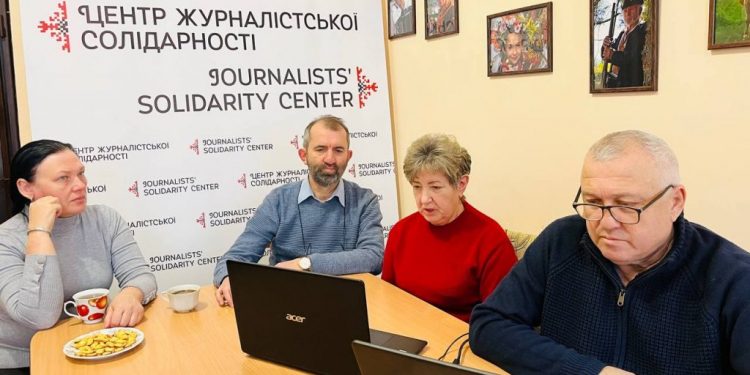
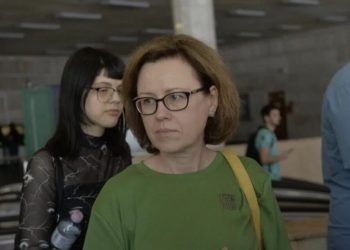
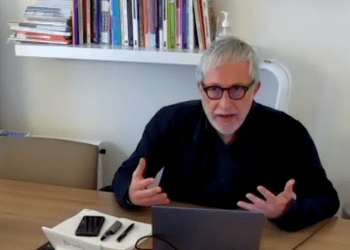
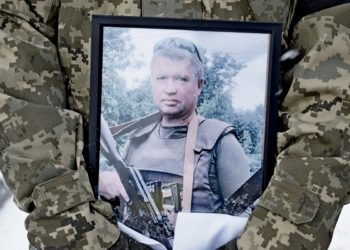













Discussion about this post